with Un-Zu Ha-Nul Lee, Julia Carolin Kothe and Mira Mann
Rosa Stern Space, Munich
Collaboration
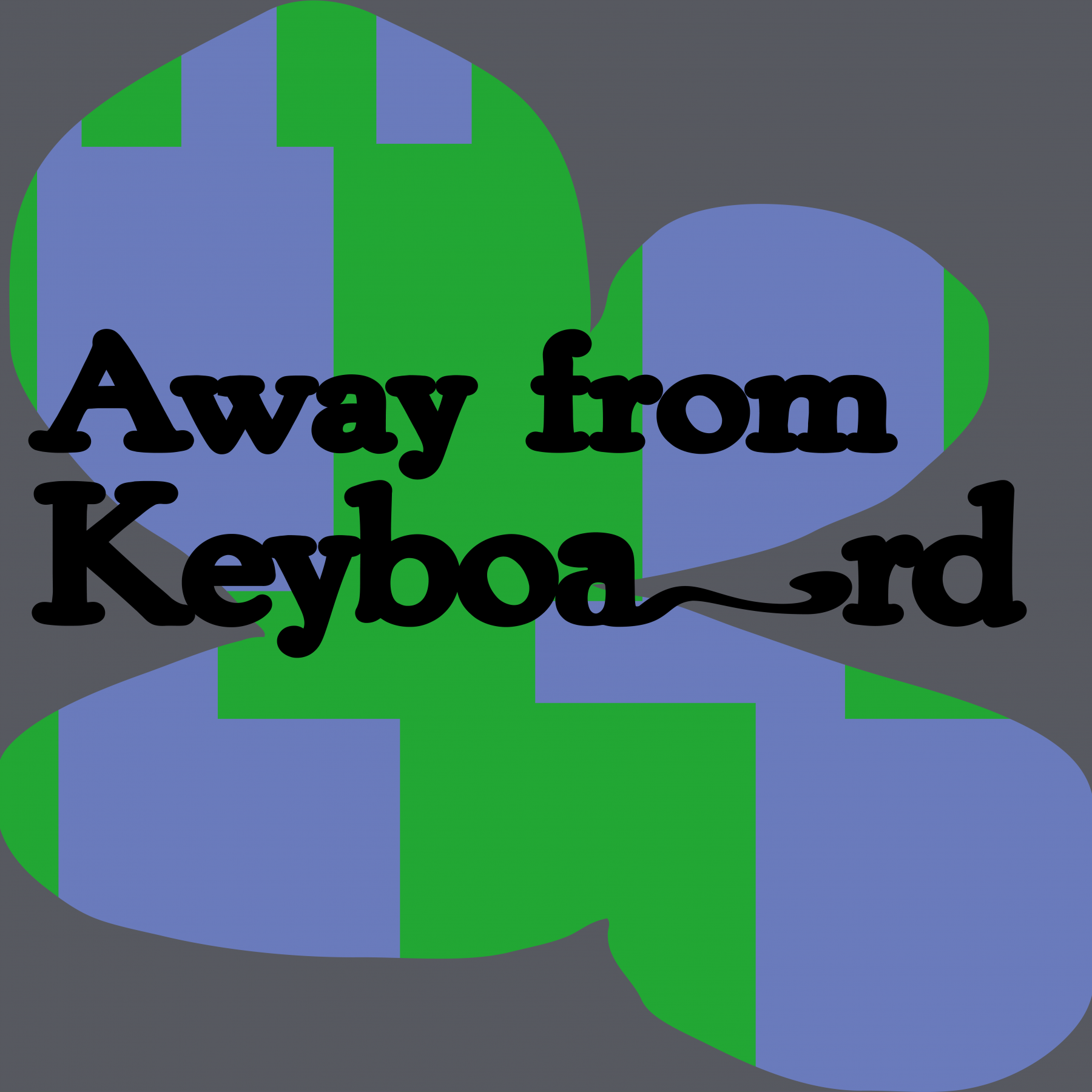
© Anne Büttner
As a magazine that operates primarily in virtual space but took its start in exhibition making, PASSE-AVANT invited three emerging artists – Un-Zu Ha-Nul Lee, Julia Carolin Kothe and Mira Mann – for an exhibition that stresses the correlation of digital and physical space. Taking inspiration from Legacy Russel’s seminal publication Glitch Feminism (2020), the show ‘Away from Keyboard’ negotiates the digital realm as a space in which the online informs the offline and vice versa. The title of the show goes back to sociologist Nathan Jurgenson’s proposal to replace the commonly used abbreviation IRL (‘In Real Life’) with AFK (‘Away from Keyboard’), emphasizing the interconnected multiplicity of physical and numeric embodiments.
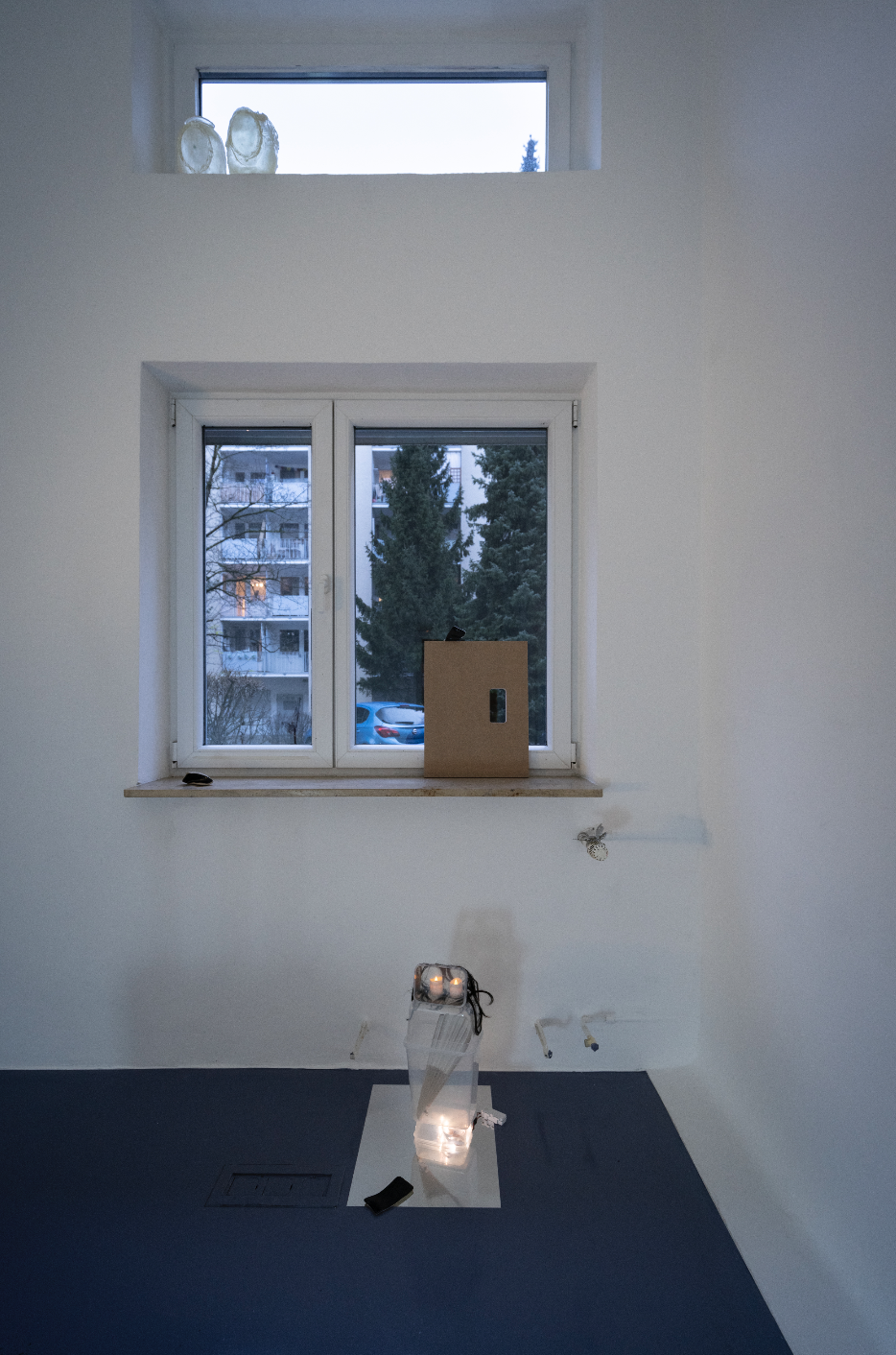
‘Away from Keyboard’, 2021, exhibition view, Rosa Stern Space, Munich. Photograph: Vincent Entekhabi
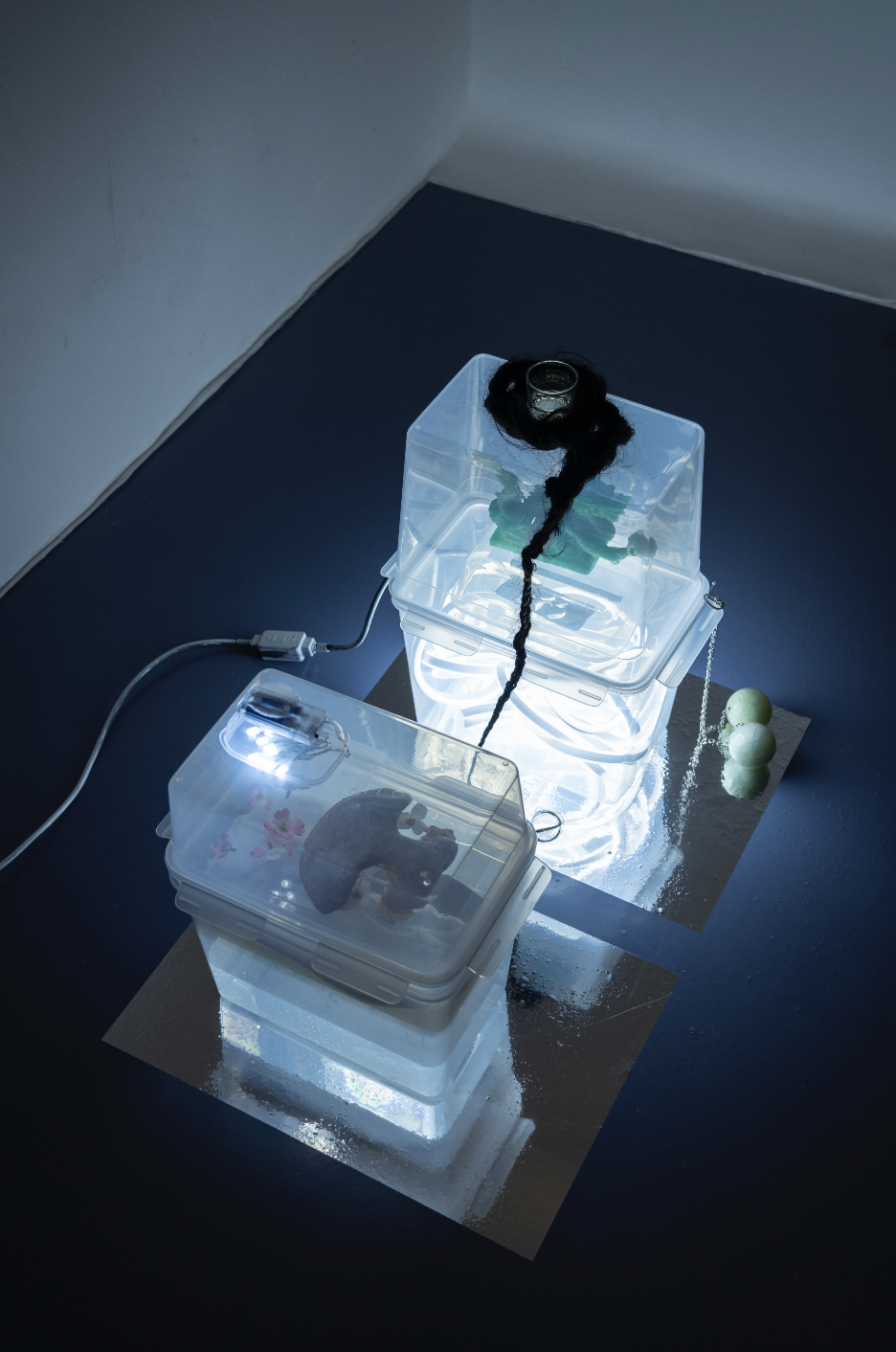
Mira Mann, Character capsule (shifter/ego/primer), all 2021, installation view, Rosa Stern Space, Munich. Photograph: Vincent Entekhabi
Marking PASSE-AVANT’s 5th anniversary, the show is conceived as a fluid container that is carried by the ideas, thoughts and conflicts of a young generation of cultural workers who have informed both virtual and physical worlds adjacent to the magazine over the past years. These considerations form the backbone of ‘Away from Keyboard’, which scrutinizes the digital as a site in which identities are in flux and can be (re-)born, edited and buried simultaneously.
The exhibition developed over the course of one year during online conversations between the artists and curators. As a physical vessel for these virtual encounters, the artists’ works could not have found a better place “away from keyboard” than at Rosa Stern Space in Munich. Considering themselves as an autonomous platform and interactive network, Rosa Stern Space encourages examinations of digital and analogue exhibition formats that focus on the in-betweens of these spaces. It’s precisely this ‘interim’, which refuses binaries, that ‘Away from Keyboard’ is seeking to address.
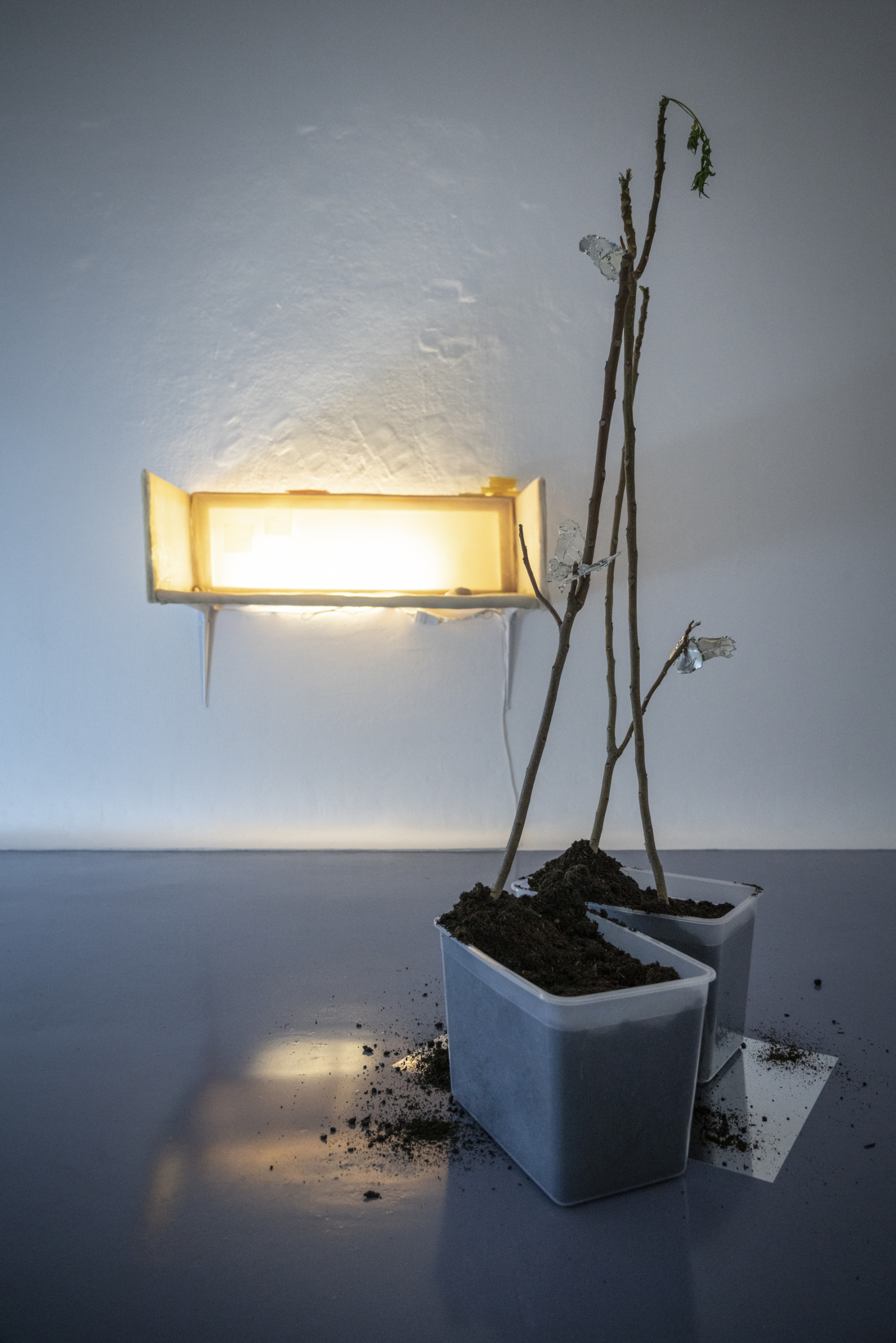
‘Away from Keyboard’, 2021, exhibition view, Rosa Stern Space, Munich. Photograph: Vincent Entekhabi
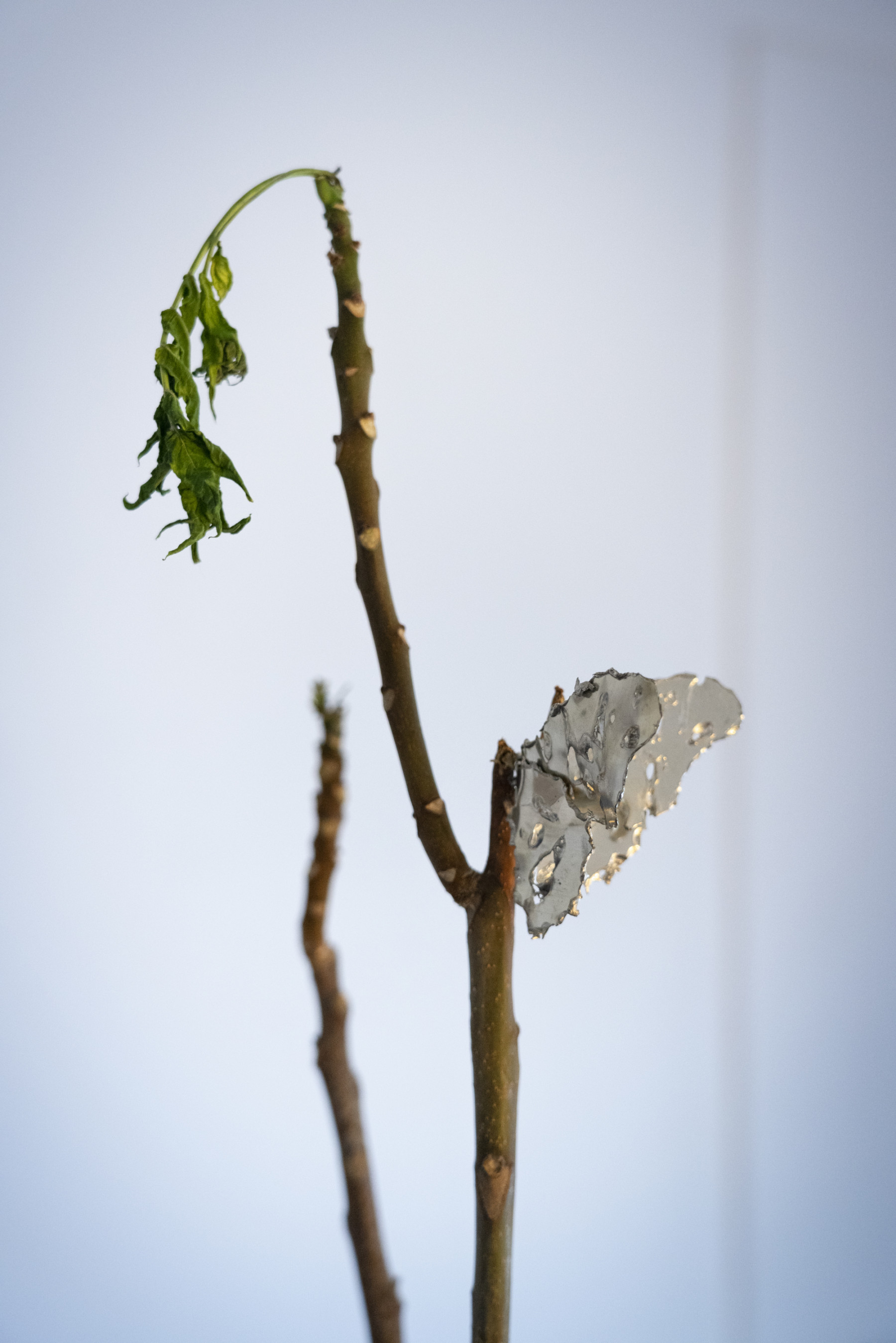
Mira Mann, Exported phantasms of a retired silversmith, 2021, installation view, Rosa Stern Space, Munich. Photograph: Vincent Entekhabi
Un-Zu Ha-Nul Lee’s installation sorry, I'm late I didn't want to come (2020-21) focuses on the indifferences between work and leisure as well as private and professional space, posing questions like: How can work remain measurable when private and professional concerns – especially in the arts – are blurred anyway? Addressing the fusion of the digital and physical in contemporary working spaces, alongside the effects of labour privatization, Lee visualizes work processes through a re-moulded workplace made of silicone. Using the luminescent material resembling human skin to form a backdrop that is both a workspace and home, the artist’s installation reflects on the pitfalls of ‘the home as office’.
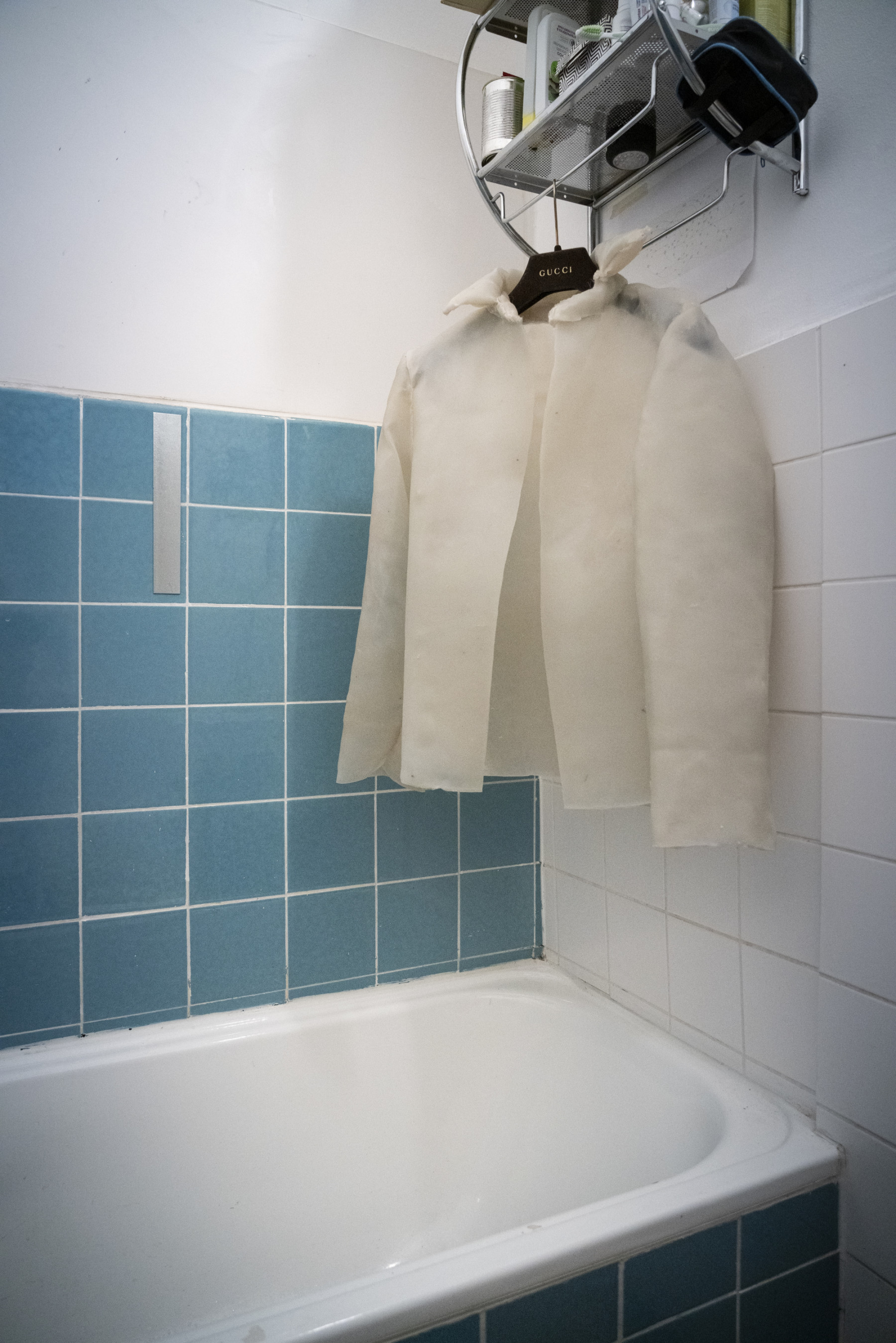
Un-Zu Ha-Nul Lee, sorry, I'm late I didn't want to come, 2020-21, installation view, Rosa Stern Space, Munich. Photograph: Vincent Entekhabi
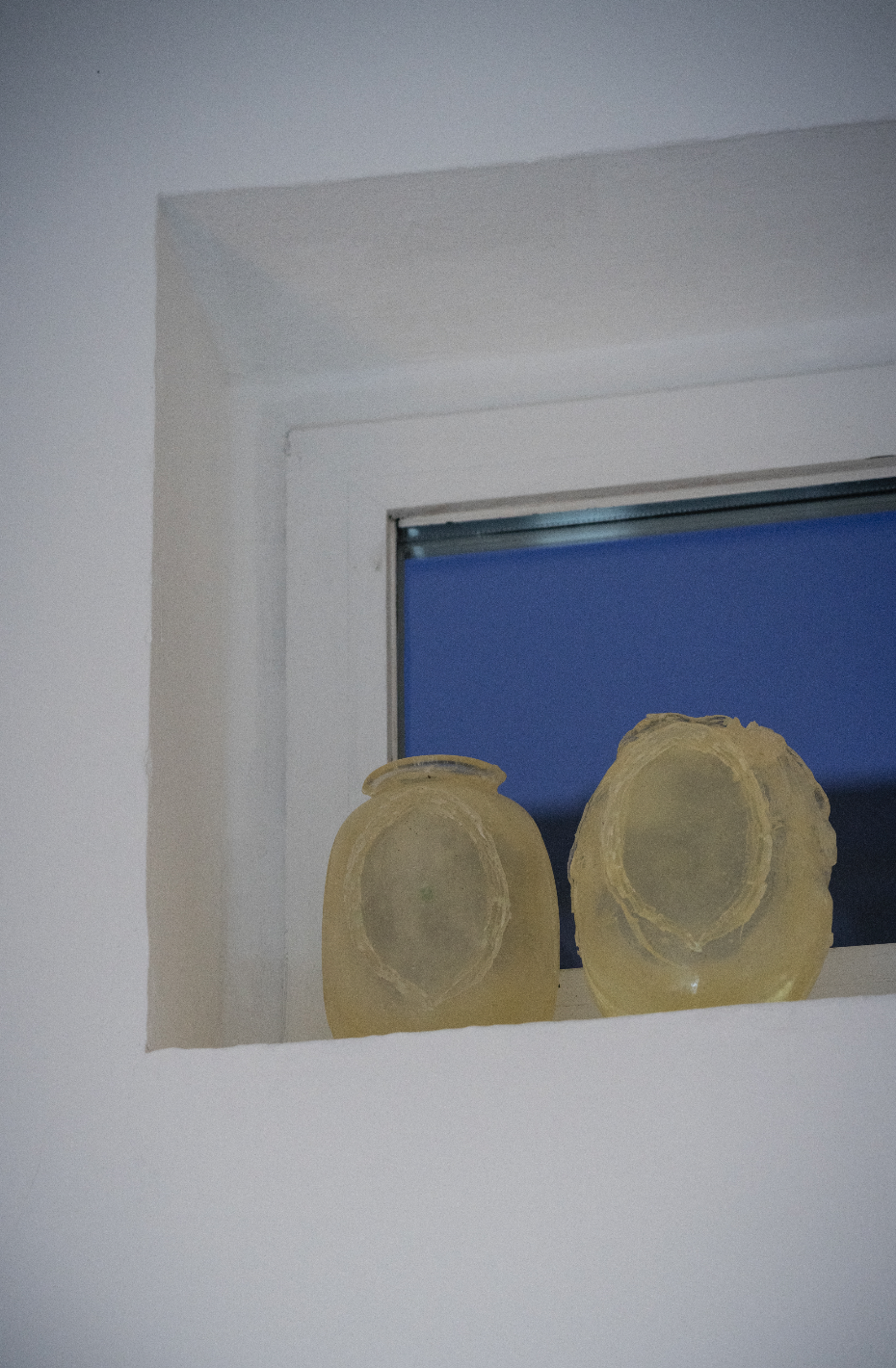
Un-Zu Ha-Nul Lee, sorry, I'm late I didn't want to come, 2020-21, installation view, Rosa Stern Space, Munich. Photograph: Vincent Entekhabi
The sculptural installations – including video, text, sound and performance – of Julia Carolin Kothe negotiate the (im-)possibilities of communication between (digital) objects, spaces and bodies. Her practice evolves in non-linear acts or chapters based on narratives combining fiction and theory that respond to particular conditions of exhibition spaces and the bodies within it. At Rosa Stern Space, she presented the newly commissioned piece It keeps running through her mind and she keeps softly humming to herself… ffff, click, tick, plop, ptui (2021). Here, a short video sequence extracted from a recording by Kothe’s father depicts the artist at the age of four. A piece of wood that has been adapted to the size of hand luggage on flights, thus, hints at the pandemic conditions of art production and transport. Combined with miniature ceramics sculptures in the shape of broken and deformed iPhones, Kothe’s installation questions how the human relation to corporeality has been altered in the disembodied spaces of data, algorithms and technology of the 21st century.
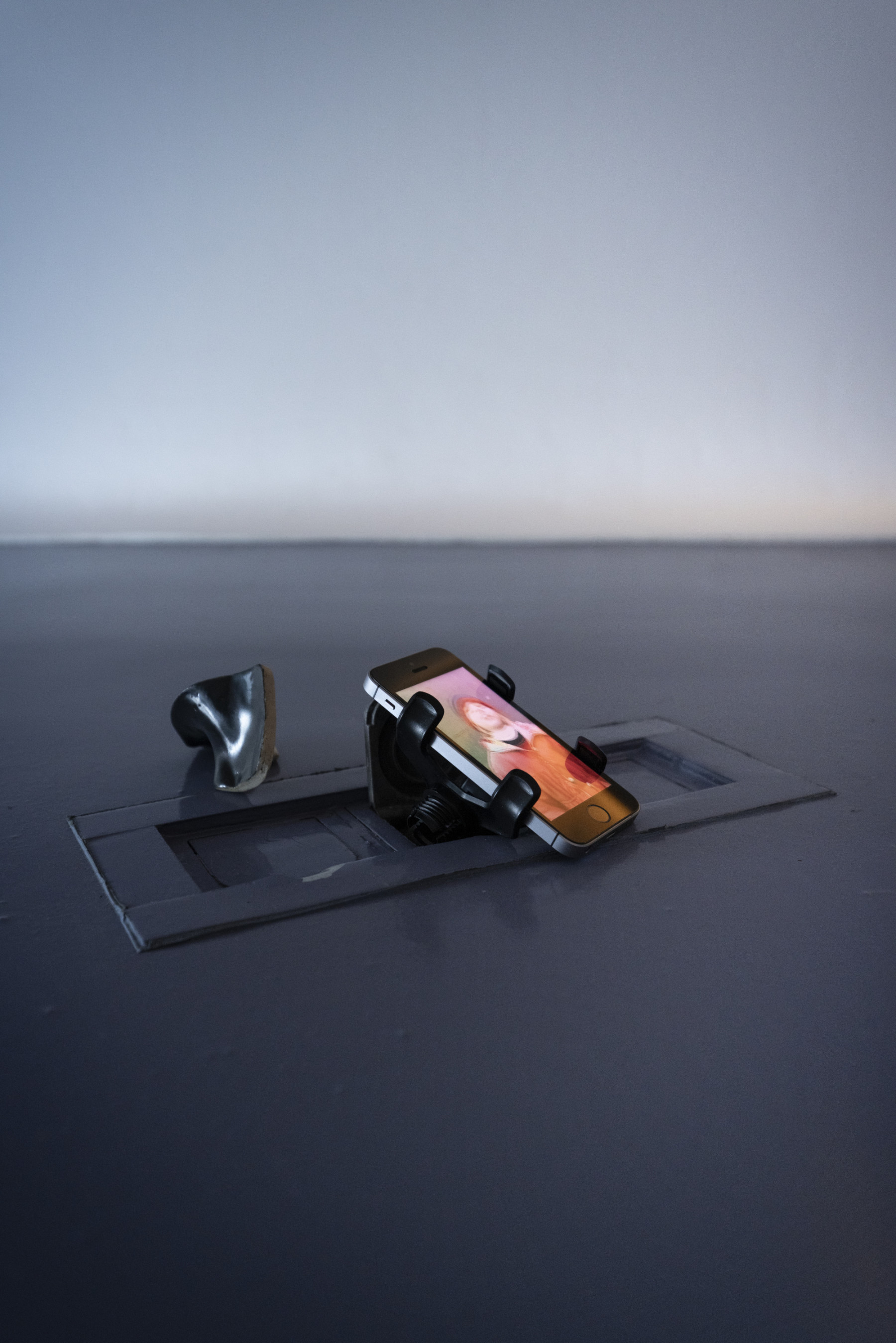
Julia Caroline Kothe, It keeps running through her mind and she keeps softly humming to herself… ffff, click, tick, plop, ptui, 2021, installation view, Rosa Stern Space, Munich. Photograph: Vincent Entekhabi
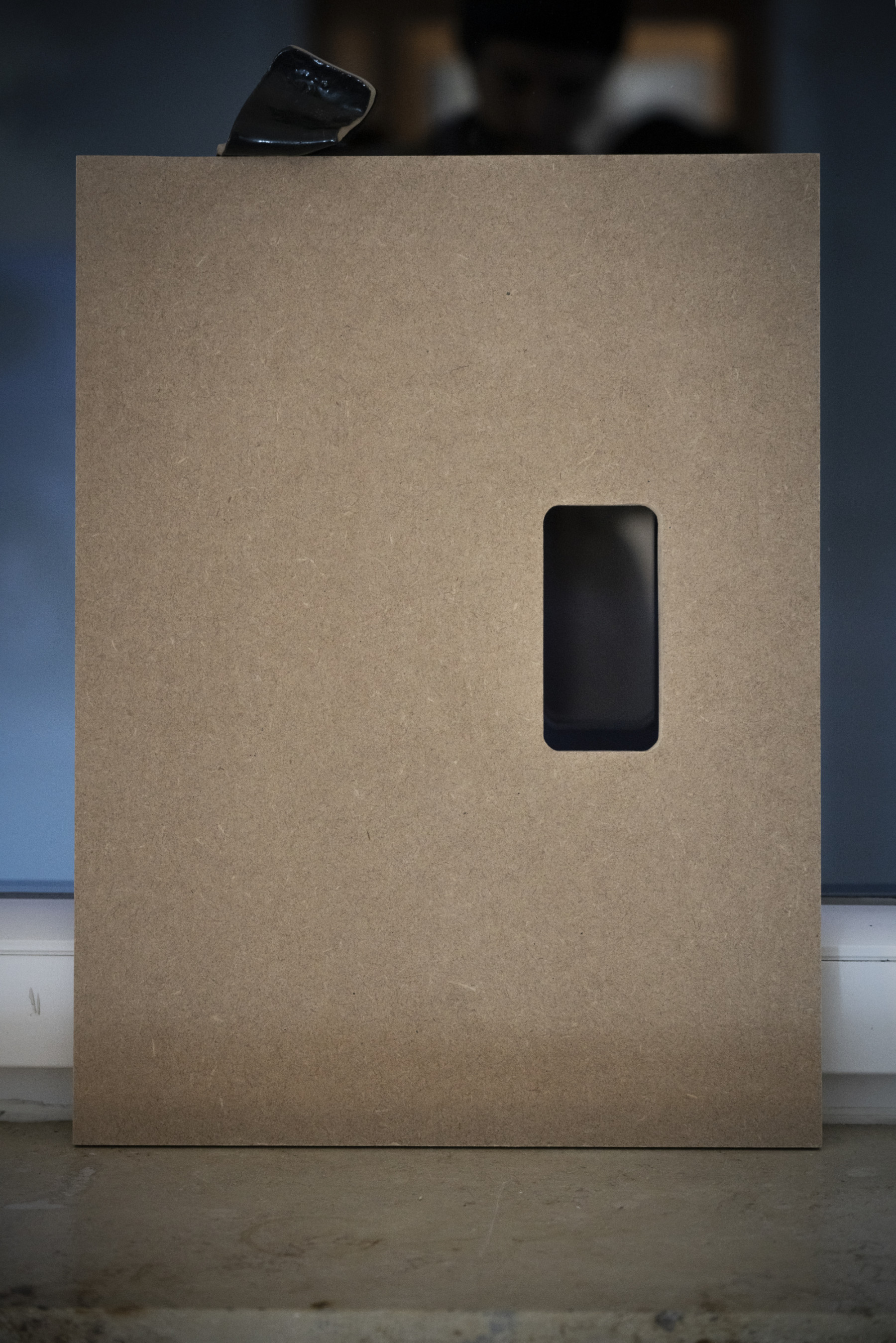
Julia Caroline Kothe, It keeps running through her mind and she keeps softly humming to herself… ffff, click, tick, plop, ptui, 2021, installation view, Rosa Stern Space, Munich. Photograph: Vincent Entekhabi
Mira Mann’s space-specific installations and performances analyze the intertwinement of individual/collective identity- and memory building within socio-historical structures and power relations. Fiction and storytelling lie at the heart of Mann’s practice, aiming to deconstruct cultural hegemonies and the privileging of heteronormativity. For ‘Away from Keyboard’, the artist combines ‘trees of heaven’ (in German: ‘Götterbäume’) with a series of tin objects reminiscent of ailanthus silkmoths (Exported phantasms of a retired silversmith) – both originating from South East Asia –, referencing the consequences and continuities of Asian-diasporic migration through the colonial trade. In the series Character capsule (shifter/ego/primer), three contemporary ritual sites preserve small probs such as dragons, masks or hair combs in illuminated containers. The items recall characters derived from the artist’s most recent multi-parted performances ssssuuuu-guuuung-ggggaaaa, extracurricular activity 1,2, and let me tell you en detail (all works, 2021), which are dealing with ‘Pansori’, a traditional Korean genre of musical storytelling. Mann’s performative and sculptural work not only archives but calls attention to the fluidity of multiple identities, alter-egos and cyborgian personas we hold – both on- and offline – and how they are born out of and inform one another.
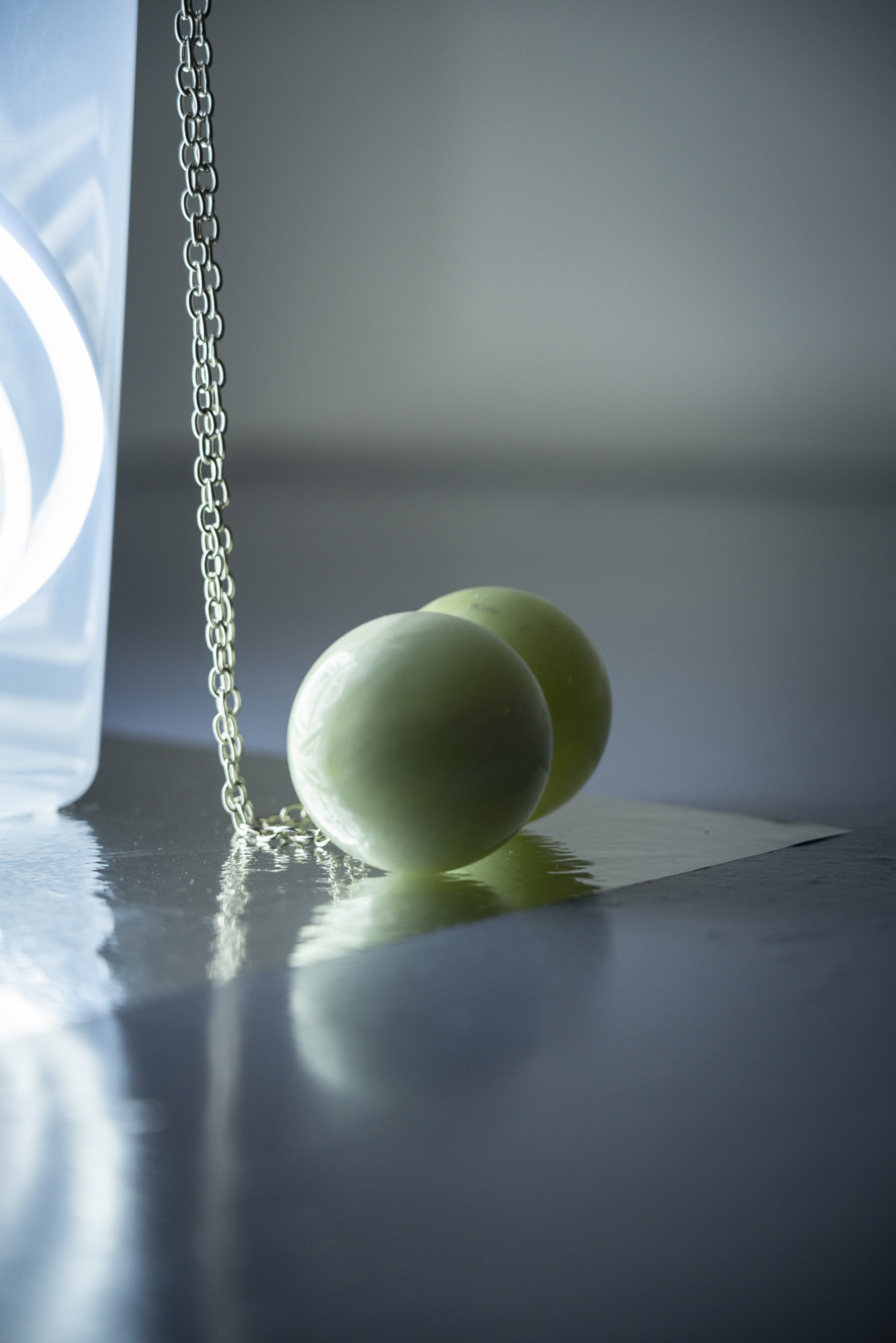
Mira Mann, Character capsule (shifter/ego/primer), all 2021, installation view (detail), Rosa Stern Space, Munich. Photograph: Vincent Entekhabi
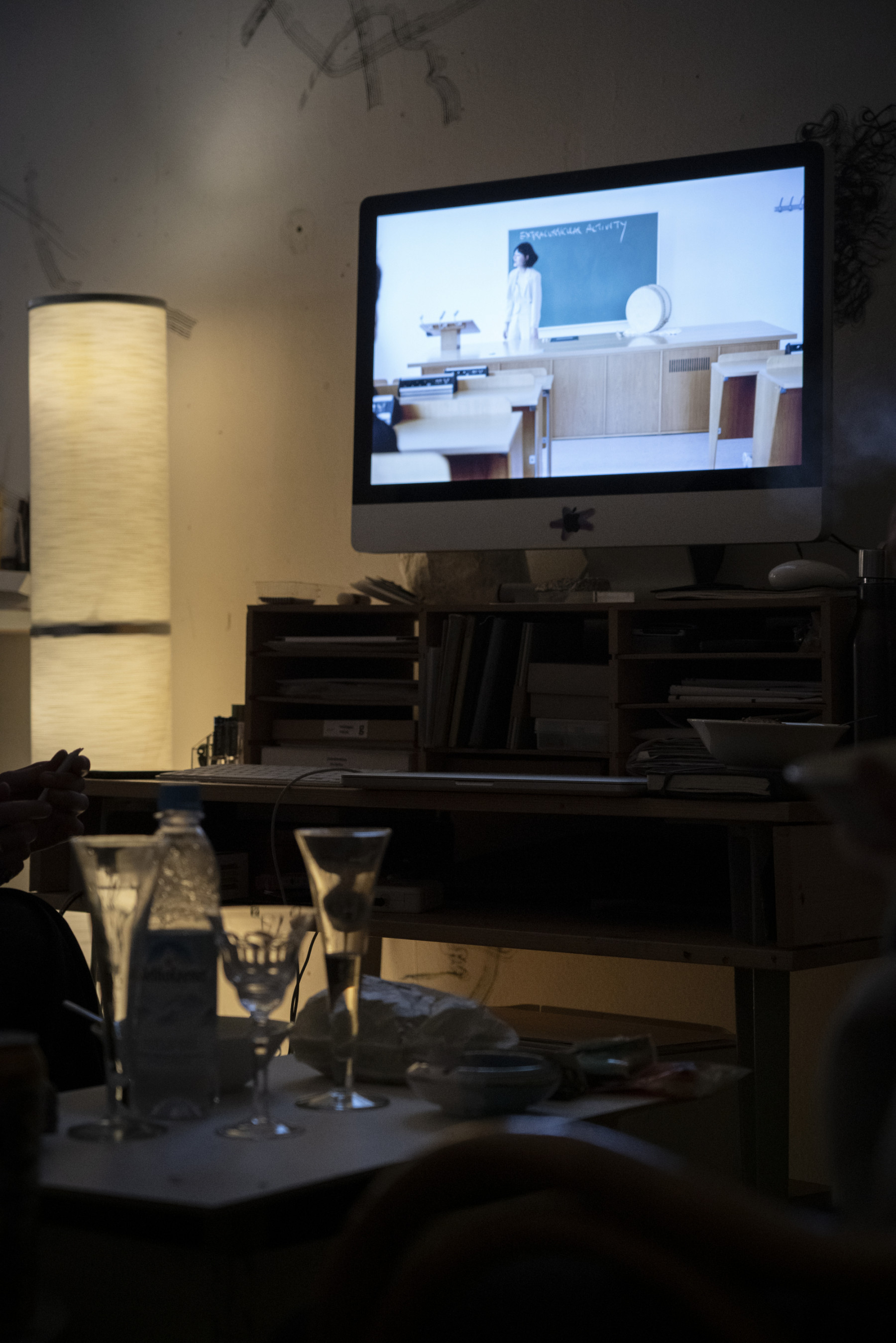
Mira Mann, ssssuuuu-guuuung-ggggaaaa, 2021, installation view, Rosa Stern Space, Munich. Photograph: Vincent Entekhabi
Biographies
Un-Zu Ha-Nul Lee (*1992) is an artist based in Offenbach/Main, Germany, where she currently pursues a diploma at the Hochschule für Gestaltung. Her works have been presented at 1822-Forum (2021, Frankfurt/Main), mañana bold (2021, Offenbach/Main), Opelvillen Rüsselsheim (2020), Galerie Anita Beckers (2020, Frankfurt/Main) and at the POSITIONS Art Fair (2019, Berlin).
Julia Carolin Kothe (*1991) is an artist based in Glasgow, UK. She graduated from The Glasgow School of Art (2019, UK) and Kunsthochschule Mainz (2018). Recent works were shown at Kunsthalle Mainz (2021), Queens Street Studios (2021, Belfast), POKY – Institute of Contemporary Art (2020, Mainz), ATLETIKA Gallery, Vilnus (2020), mañana bold (2019, Offenbach/Main) and Frankfurter Kunstverein (2018), amongst others.
Mira Mann (*1993) is an artist based in Düsseldorf, Germany. In 2021, they received a diploma at Kunstakademie Düsseldorf with Professor Dominique Gonzalez-Foerster. The artist’s works have been included at Urbane Künste Ruhr & Kunstverein Dortmund (2021), Simultanhalle, Cologne (2020), Kunsthalle Osnabrück (2019) amongst others, and are part of this year’s editions at Kunstverein Für die Rheinlande und Westfalen Düsseldorf.
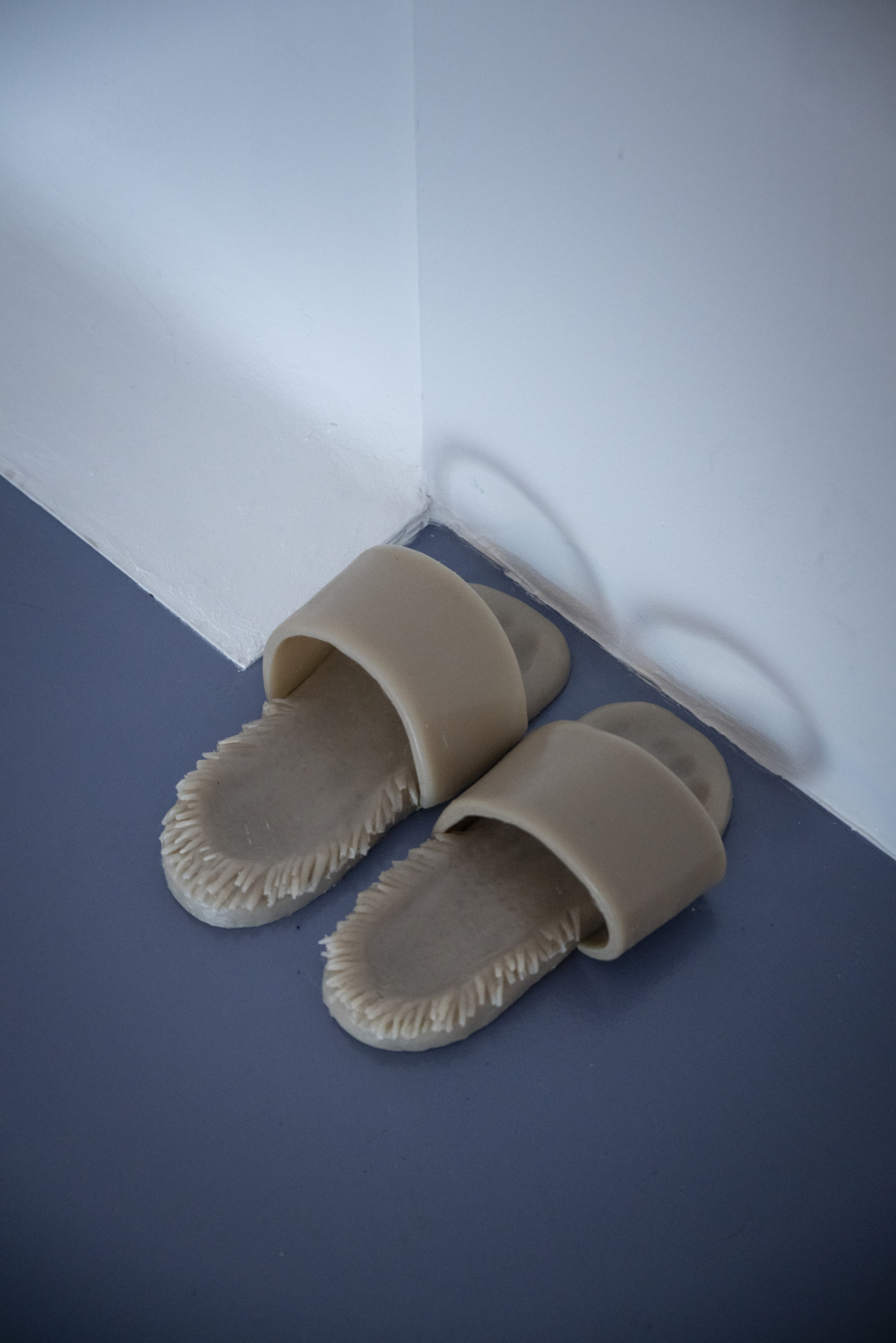
Un-Zu Ha-Nul Lee, sorry, I'm late I didn't want to come, 2020-21, installation view, Rosa Stern Space, Munich. Photograph: Vincent Entekhabi
‘Away from Keyboard'
12 December 2021 – 30 January 2022
Opening: 11 December, 4–9 pm
Artists
Un-Zu Ha-Nul Lee, Julia Carolin Kothe and Mira Mann
Curators
Sonja Borstner and Carina Bukuts
Rosa Stern Space
Belgradstraße 76
80796 Munich
Germany